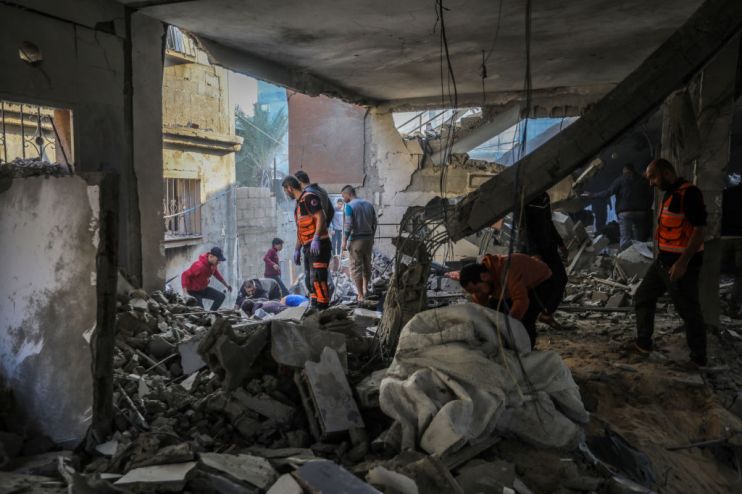Israel spells out vision for next steps in Gaza: ‘Scaled down’ war – but it isn’t ending

Israel’s defence minister Yoav Gallant has said Israeli forces would shift to a scaled-down “new combat approach” in northern Gaza in the next phase of the conflict.
He said forces would continue to fight Hamas in the south of the territory “for as long as necessary.”
Mr Gallant also outlined a proposal for how Gaza would be run once Hamas is defeated, with Israel keeping security control while an undefined, Israeli-guided Palestinian body runs day-to-day administration.
He said the US and other countries would oversee rebuilding in a document entitled a “Vision for Phase 3” of the war. His office said the phase had not yet begun, and the ideas were Mr Gallant’s and not official policy, which would have to be set by Israel’s war and security cabinets.
Mr Gallant is a member of both cabinets, and his plans were issued ahead of US Secretary of State Antony Blinken’s talks in Israel and other countries in the region this weekend.
The United States has pressed Israel to shift to lower-intensity military operations in Gaza that more precisely target Hamas after nearly three devastating months of bombardment and ground assaults.
Israel’s campaign in Gaza has killed more than 22,400 people, more than two-thirds of them women and children, according to the Health Ministry in the Hamas-run territory.
Mr Gallant’s statement underlined that the war would go on until Hamas’ military and government capabilities were eliminated and the more than 100 hostages still in captivity returned.
In the north, the statement said, forces will shift to a new approach that includes raids, destruction of tunnels, “air and ground activities and special operations.” The aim would be “the erosion” of the remaining Hamas presence.
There was no word whether northern Gaza’s population, which has almost entirely been driven south, would be allowed to return.
After the war, the statement said, Israel will keep security control, taking military action in Gaza when necessary to ensure there are no threats and maintaining inspections of all goods entering the territory.
Mr Gallant said there would be no Israeli civilians in Gaza, ruling out calls by some in Israel’s far-right for a return of Jewish settlers to the territory.
Palestinian entities — apparently local civil servants or communal leaders — would run the territory, with Israel providing “information to guide civilian operations,” the statement said.
An apparent Israeli strike that killed a top Hamas leader in Beirut has stirred fresh fears that the conflict could expand into other parts of the Middle East — a prospect that is also likely to be high on Mr Blinken’s agenda.
The killing of Saleh Arouri prompted warnings of retaliation from Hamas’ ally, the Lebanese Hezbollah militia. But there was no immediate escalation in the daily exchanges of rocket fire and shells between Hezbollah and the Israeli military over the two countries’ border.
Regional tensions climbed as a US airstrike killed an Iranian-backed militia leader in Iraq and as Yemen’s Houthi rebels continued attacks on ships in key Red Sea shipping lanes.
At the same time, Israel has stepped up warnings of tougher military action against Hezbollah unless it pulls its fighters out of the border region, as called for under a UN-brokered 2006 cease-fire. Israel says that is the only way tens of thousands of Israelis who evacuated from communities in the north can return.
Mr Gallant said on Thursday that there was a “short window of time” for diplomacy with Hezbollah. But he said Israel was determined to bring about “a new reality in the northern arena, which will enable the secure return of our citizens.”
Press Association – Associated Press Reporters
